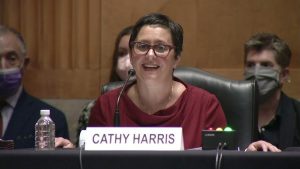The 9th Federal Appeal Court’s decision regarding President Trump’s ban on travel is both interesting and simultaneously predictive of the future. The president issued several immigration-related presidential orders as soon as he took office and, although all controversial, the first one was just challenged. What the well-written ruling by the 9th Circuit demonstrates is not that the president cannot do what he is doing, but that he must do so with a finer brush stroke, states immigration expert Steven Riznyk.
Although President Trump’s heart may be in the right place, the method of execution is not one that will work over the long term. Immigration is multi-faceted and there are many special interests at stake. At any time, they are challenged in some way, there is no shortage of organizations that will take the issues to court for resolution. The more people and entities affected, the more likely a rapid onslaught of challenges will appear. This was the case here. On the other hand, his presidential order dealing with criminal offenders has had little publicity, despite the riskiness of the fact that one does not even have to be convicted to be removable.
Having practiced for 29 years, states Steven Riznyk, I believe the immigration problems cannot be repaired by only one entity, or representative. It requires multi-faceted input as there is a lot to incorporate and it is wired in the most complex of manners, sprinkled with landmines. No politician or member of the public who has not spent at least a couple of decades in this area can possibly understand it enough to clearly ascertain its strengths and weaknesses. This area, states Mr. Riznyk, requires a formidable brain trust of persons from different areas to carve out a viable solution for a functional system. An area so complex and with so many special interest groups cannot be addressed without a multitude of sub-parts addressing the different permutations possible.
The lesson to be learned here, is that if the president wants to issue presidential orders with immediate and holding effect, he will have to draft them in a manner that does not impair rights across the board and challenge constitutional issues. If he does not do that, he will find that half of his time could be spent reading appellate briefs challenging his jurisdiction. There are some aspects of the immigration system that do require immediate action and I am in favor of repairing the broken infrastructure. The challenge we face is that if the orders are drafted so broadly, they will have the opposite effect as nothing will get accomplished as the cases languish in the very busy court systems. If that happens, the negative aspects of the future orders will disappear, but so will any benefits as a result of the time these cases spend in the appellate system.
(Source: Steven Riznyk)




















